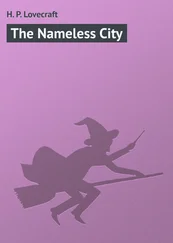Maurus Jokai - The Nameless Castle
Здесь есть возможность читать онлайн «Maurus Jokai - The Nameless Castle» весь текст электронной книги совершенно бесплатно (целиком полную версию без сокращений). В некоторых случаях можно слушать аудио, скачать через торрент в формате fb2 и присутствует краткое содержание. Город: New York, Год выпуска: 1898, Издательство: Doubleday, Page & Company, Жанр: Историческая проза, на английском языке. Описание произведения, (предисловие) а так же отзывы посетителей доступны на портале библиотеки ЛибКат.
- Название:The Nameless Castle
- Автор:
- Издательство:Doubleday, Page & Company
- Жанр:
- Год:1898
- Город:New York
- ISBN:нет данных
- Рейтинг книги:4 / 5. Голосов: 1
-
Избранное:Добавить в избранное
- Отзывы:
-
Ваша оценка:
- 80
- 1
- 2
- 3
- 4
- 5
The Nameless Castle: краткое содержание, описание и аннотация
Предлагаем к чтению аннотацию, описание, краткое содержание или предисловие (зависит от того, что написал сам автор книги «The Nameless Castle»). Если вы не нашли необходимую информацию о книге — напишите в комментариях, мы постараемся отыскать её.
The Nameless Castle — читать онлайн бесплатно полную книгу (весь текст) целиком
Ниже представлен текст книги, разбитый по страницам. Система сохранения места последней прочитанной страницы, позволяет с удобством читать онлайн бесплатно книгу «The Nameless Castle», без необходимости каждый раз заново искать на чём Вы остановились. Поставьте закладку, и сможете в любой момент перейти на страницу, на которой закончили чтение.
Интервал:
Закладка:
“What is the world?” interrupted Marie.
“The entire human race and their habitations—the earth.”
“Then every person owns a plot of earth? Where is the plot which belongs to us? Answer me that!”
“By the way, that reminds me!” exclaimed Ludwig, relieved to find an opportunity to change the subject. “I have not yet told thee that I intend to buy a lovely plot of ground on the shore of the lake, which is to be made into a pretty flower-garden for thy use alone. Will not that be pleasant?”
“Thou art very kind; the garden will be lovely. That plot of ground, then, will be our home, will it not? What is one’s home called?”
“It is called the fatherland.”
“Then every country is not one’s fatherland?”
“If our enemies live there, it is not.”
“What are enemies?”
“Persons with whom we are angry.”
“What is angry? I have never yet seen anything like it. Why art thou never angry?”
“Because I have no reason to be angry with thee, and I never associate with any one else.”
“What do those persons do who become angry with one another?”
“They avoid each other. If they are very angry they fight; and if they are very, very angry they kill each other.”
The maid was tortured with curiosity to-day. She drew a pin from her robe, and secretly thrust the point into Ludwig’s hand.
“What art thou doing?” he asked, in surprise.
“I want to see what thou art like when thou art angry. Did it hurt thee?”
“Certainly it hurt me; see, the blood is flowing.”
“Ah, heaven!” cried the maid, in terror, drew the young man’s head toward her, and pressed a kiss on his face.
He sprang to his feet, his face pale as death, extreme horror depicted in his glance.
“There!” exclaimed the maid. “Thou dost not kill me, and yet I have made thee very angry.”
“This is not anger,” sighed the young man.
“What is it, then?”
“It has no name.”
“Then I may not kiss thee? Thou lettest me kiss thee last year, and the year before, and every other year.”
“But thou art fifteen years old to-day.”
“Ah! Then what was allowed last year, and always before that, is not allowed now. Dost not thou love me any more?”
“All my thoughts are filled with thee.”
“Thou knowest that I have always been allowed to make one wish on my birthday, and that it has always been granted. That is what some one accustomed me to—thou knowest very well who.”
“Thy desires have always been fulfilled.”
“Yes; and children understand how to desire what is impossible. But grown persons are clever enough to know how to impose on the children. Three years ago I asked thee to bring me some one with whom I could talk—some one who would be company for me. Thou broughtest me cats and dogs and a bird! Two years ago I wished I might learn how to make pictures; and I was given paper patterns to color with water-colors. One year ago to-day I wished I might learn how to make music; and a hand-organ was bought for me. Oh, yes; my wishes have always been fulfilled, but always in a way that cheated me. Children are always treated so. To-day thou sayest that I am fifteen years old, and that I am not any more to be treated as a child. Mark that! To-day, as heretofore, I ask something of thee which thou canst give me—and thou canst not cheat me, either!”
“Whatever it may be, thou shalt have it, Marie.”
“Thy hand on it! Now, thou knowest that I asked thee not long ago to send to Paris for a ‘Melusine costume’ for me!”
“And has it not already arrived? I myself delivered the box into thy hands.”
“Knowest thou what a Melusine costume is? See, this is it.”
With these words she sprang from her seat, untied the cord about her waist, flung off the silken wrapper, and stood in front of the speechless young man in one of those costumes worn by Paris dames at the sea-shore when they disport themselves amid the waves of the ocean. The Melusine costume was a bathing-dress.
“To-day, Ludwig, I ask that thou wilt teach me how to swim. The lake is just out yonder below the garden.”
The maid, in her pale-blue bathing-dress, looked like one of those fairy-like creatures in Shakspere’s “Midsummer Night’s Dream,” innocent and alluring, child and siren.
Disconcerted and embarrassed, Ludwig raised his hand.
“Art thou going to strike me?” inquired the child, half crying, half laughing.
“Pray put on the wrapper again!” said Ludwig, taking the garment from the sofa and with it veiling the model for a Naiad. “What sort of a caprice is this?”
“I have had the thought in my head for a long, long time, and I beg that thou wilt grant my request. Thou canst not say that thou canst not swim; for once, when we were traveling in great haste, I know not why, we came to a river, and found that the boat was on the farther shore. Thou swammest across, and broughtest back the boat in which the four of us then crossed to the other side. Already then the desire to swim arose in me. What a delicious sensation to swim through the water—to make wings of one’s arms and fly like a bird! Since we live in this castle the wish has become stronger. Night after night I dream that I am cleaving through the waves. I never see God’s sky when I go out, because I have to cover my face. It is just like looking at creation through a grating! I should love dearly to sing and shout for joy; but I dare not, for I am afraid the trees, the walls, the people, might hear me and betray me. But out yonder I could float on the green waves, where I should meet no one, where no one would see me. I could look up at the shining sky, and about in chorus with the fish-hawks, surrounded by the darting fishes, that would tell no one what they had seen or heard. That would be supreme happiness for me; wilt not thou help me to secure it?”
The child’s wish was so true, so earnest, and Ludwig himself had experienced the proud delights of which she had spoken. Perhaps, too, he had related to Marie the story of Clelia and her companions, who swam the Tiber to preserve the Roman maidens’ reputation for virtue.
“Whatever gives pleasure to thee pleases me,” he said, extending his hand to take hers.
“And thou wilt grant my wish? Oh, how kind, how dear thou art!” And in vain the young man sought to withdraw the hand she covered with kisses. “What!” she exclaimed reproachfully, “may I not kiss thy hand either?”
“How canst thou behave so, Marie? Thou art fifteen years old! A grown-up girl does not kiss a man’s hand.”
He passed his hand across his brow and sighed heavily; then he rose to his feet.
“Where art thou going? Knowest thou not that to-day thou dost not belong to thy horrid books nor to thy telescope, but that thou art my subject?”
“I go to execute the commands of my little queen. If she desires to learn to swim, I must have a bath-house built on the shore, and look about for a suitable spot in the little cove.”
“When I have learned to swim all by myself, may not I go beyond the little cove—away out into the open lake?”
“Yes, on two conditions. One is that I may follow in my canoe—”
“But not keep very near to me?”
“Of course not. The second condition is that in daylight thou wilt not swim beyond those willows which conceal the cove. Only on moonlight evenings mayest thou venture into the open lake.”
“But why may not I venture by daylight?”
“Because a telescope does not enable one to distinguish features after night. Other people may have a telescope, like myself.”
“Who would have one in this village?”
“The manor has a new occupant. A lady has taken possession there.”
Читать дальшеИнтервал:
Закладка:
Похожие книги на «The Nameless Castle»
Представляем Вашему вниманию похожие книги на «The Nameless Castle» списком для выбора. Мы отобрали схожую по названию и смыслу литературу в надежде предоставить читателям больше вариантов отыскать новые, интересные, ещё непрочитанные произведения.
Обсуждение, отзывы о книге «The Nameless Castle» и просто собственные мнения читателей. Оставьте ваши комментарии, напишите, что Вы думаете о произведении, его смысле или главных героях. Укажите что конкретно понравилось, а что нет, и почему Вы так считаете.












